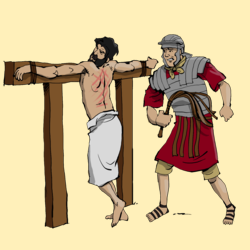 I recently read on someone’s blog (unfortunately I can’t remember whose) that the book Mahatma Gandhi: An Interpretation was the most influential book in the blogger’s life. I was intrigued by that statement, but wasn’t going to do anything about it until I found that a scanned copy of the book could be downloaded from the Internet for free. I couldn’t argue with the cost, so I read the book.
I recently read on someone’s blog (unfortunately I can’t remember whose) that the book Mahatma Gandhi: An Interpretation was the most influential book in the blogger’s life. I was intrigued by that statement, but wasn’t going to do anything about it until I found that a scanned copy of the book could be downloaded from the Internet for free. I couldn’t argue with the cost, so I read the book.
The author E Stanley Jones, who was a close friend of Gandhi, is a bit too fulsome in his praise for my liking, but he manages to capture some remarkable details about Gandhi’s life when he says (page 8), “I kneel at the feet of Christ and give him my full and final allegiance. And yet a little man, who fought a system in the framework of which I stand, has taught me more of the spirit of Christ than perhaps any other man in East or West.”
What would a Christian lifestyle look like today if someone really took Jesus seriously? It would surely involve living modestly, serving the poor, and fighting against the forces of oppression, but using love and not violence as a weapon. Gandhi, although not a Christian, took Jesus’s teachings seriously and used non-violent resistance and unfailing politeness as his main weapons in achieving independence for India, refusing to retaliate for the violence, derision and persecution which he suffered.








